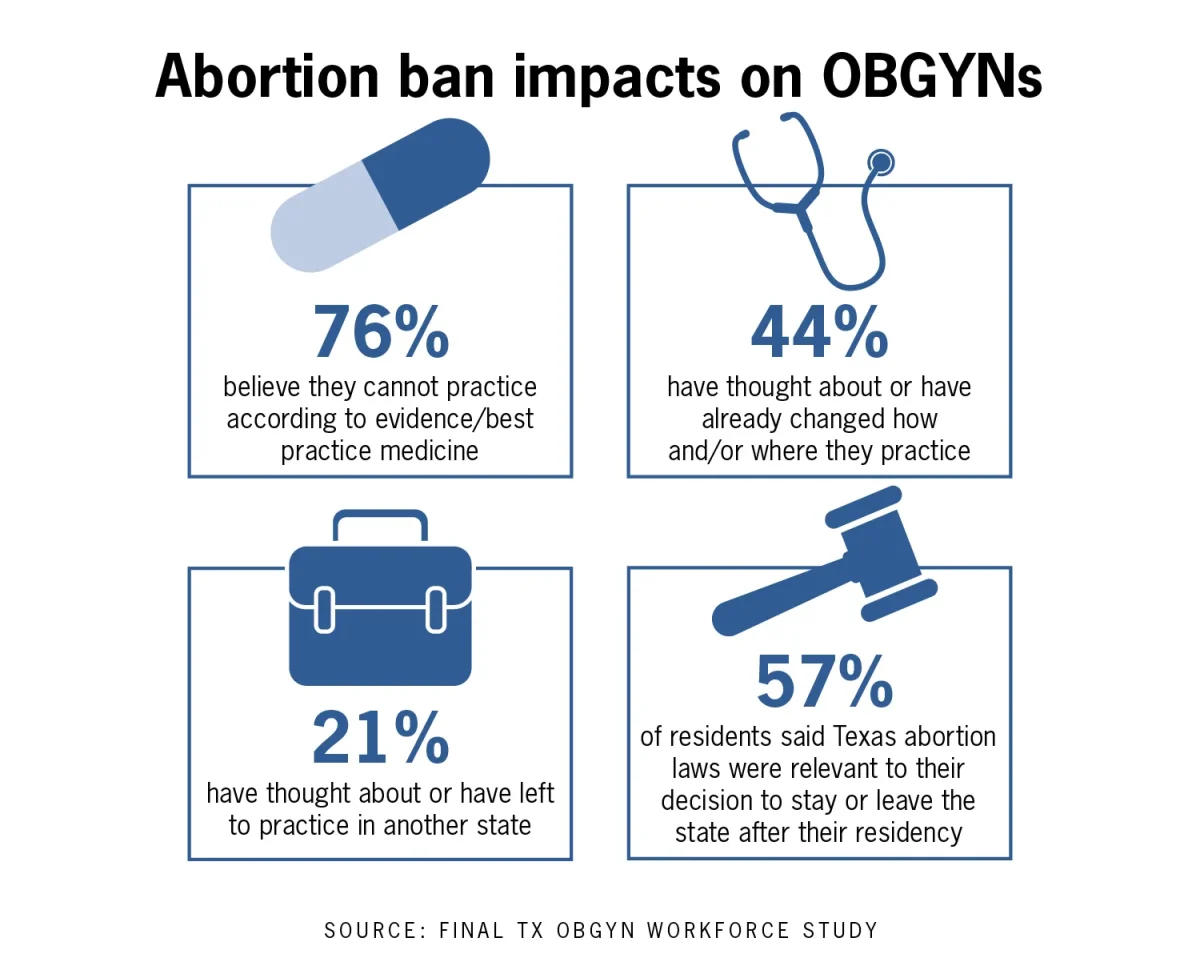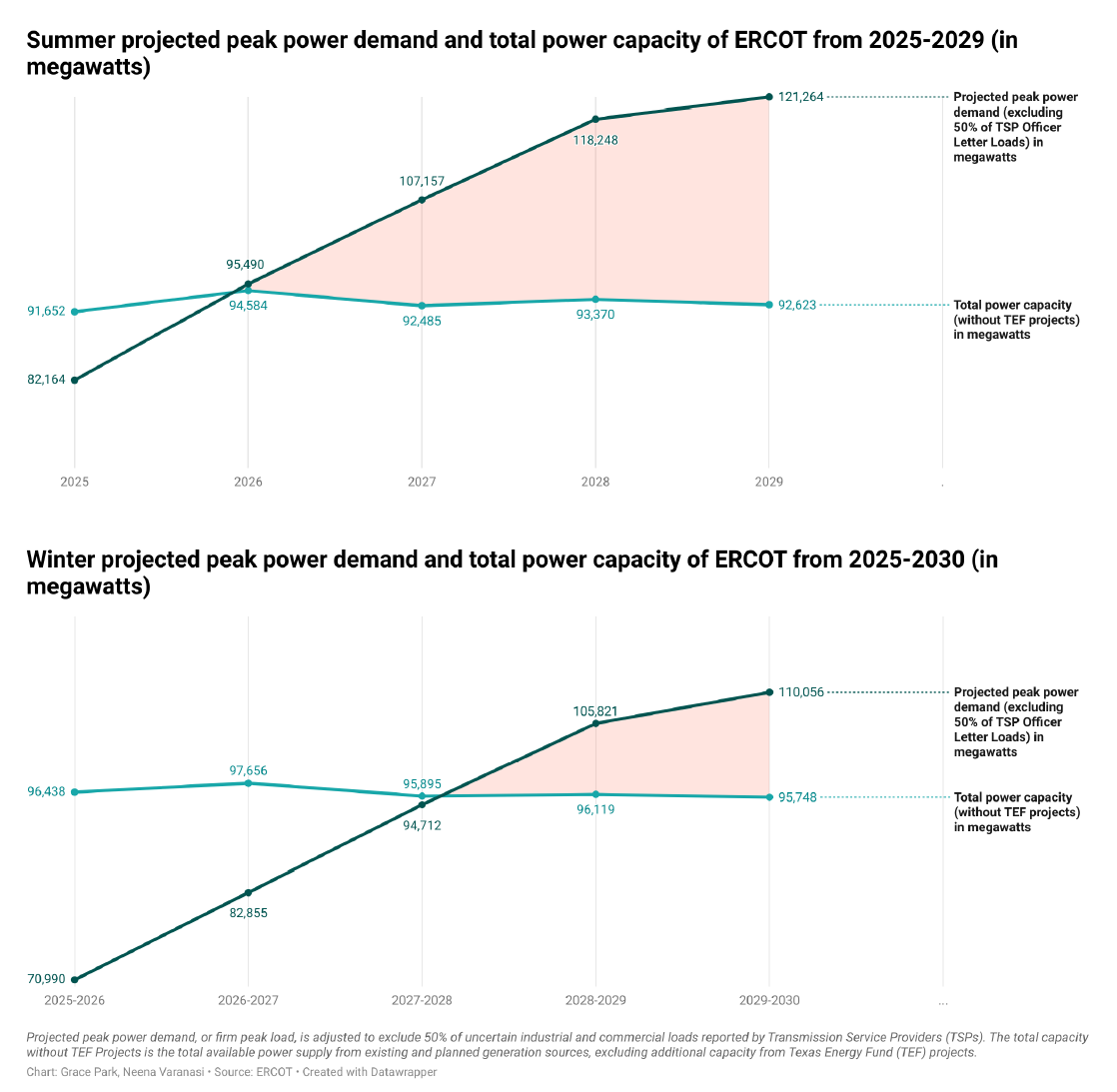Seventy-six percent of Texan obstetricians and gynecologists believe they cannot practice according to best practices or evidence-based medicine, according to a Oct. 8 survey.
Findings from Manatt Health, a healthcare legal and policy consulting company, show that 21% of OB-GYNs in Texas plan to leave or have already left to practice in another state, with 60% fearing legal repercussions due to ambiguity in the law. Texas’ trigger law, which banned abortions after six weeks, took effect after the U.S. Supreme Court overturned Roe v. Wade in 2022.
Dr. Amy Chapman, an Austin-based OB-GYN at Women’s Health Domain, said the abortion ban makes prescribing and accessing medications difficult even if they aren’t necessarily used for terminating pregnancies. Some of the restricted medications can also be used in general care to help test for uterine cancer, she said.
“This medication can also be used in a termination of pregnancy, so it makes it very difficult for our patients to access that medication,” Chapman said. “(For) someone who looks like they’re 60 years old or 65 years old, it’s impossible for that person to be pregnant. However, because the pharmacists were so fearful that they would get in trouble for dispensing this medication, they were giving our patients a very difficult time in getting access to this medication.”
Chapman said many patients are worried gynecologists have to choose between patient care and fetus care under the new restrictions.
“I have patients that come in at the beginning of a pregnancy, asking me specifically, ‘Who are you going to prioritize here? Are you going to prioritize me over the baby if my life is in danger?’” Chapman said.
New difficulties in practicing gynecology have also resulted in a drop in training program application rates in Texas. After the Supreme Court struck down Roe v. Wade, there was a 10.5% drop in applications to OB-GYN programs in states that banned abortion. Texas saw a 6.4% drop, according to a 2023 study by the Association of American Medical Colleges.
Sneha Kesavan, president of the pre-health fraternity Texas Alpha Phi Sigma, said her cousins, who practice medicine in Michigan and New York, advised her to leave Texas to pursue gynecology in states without abortion restrictions.
“She said ‘Don’t do it, especially as a woman in medicine,’” the neuroscience and Plan II senior said. “That was my first wake up call to how different it will be studying and training in Texas.”
Kesavan said because so many OB-GYNs are leaving Texas, students may experience longer wait times and difficulty accessing care.
“It’s not even from the time that you get into the clinic and see the doctor,” Kesavan said. “It’s getting the appointment in the first place.”
Chapman said the shortage is even more evident in rural and underserved parts of Texas, where there’s already a lack of care. Kesavan said she noticed the effects when shadowing an OB-GYN in West Texas.
“She had a patient all the way from Alpine, which is a five-hour drive away,” Kesavan said. “There’s no OB-GYN in Alpine, there’s only nurse practitioners that help with delivering children, but there’s not an obstetrician or gynecologist helping women.”
According to the study, OB-GYN training programs in Texas are rewriting curricula to meet requirements from the Accreditation Council of Graduate Medical Education, or the regulatory board for medical schools. The programs aim to establish partnerships with out-of-state institutions and clinics while paying residents to do their rotations there. Less than 20% of programs in states with abortion bans have established such partnerships, the study noted.
With the upcoming election, physician guest speakers for Texas Alpha Phi Sigma are emphasizing the importance of voting in relation to their profession, Kesavan said.
“As this election cycle proceeds, doctors are becoming way more vocal,” Kesavan said. “I think that’s a really important perspective and I hope they keep doing it because some people don’t even know why or how much their rights have been restricted.”














